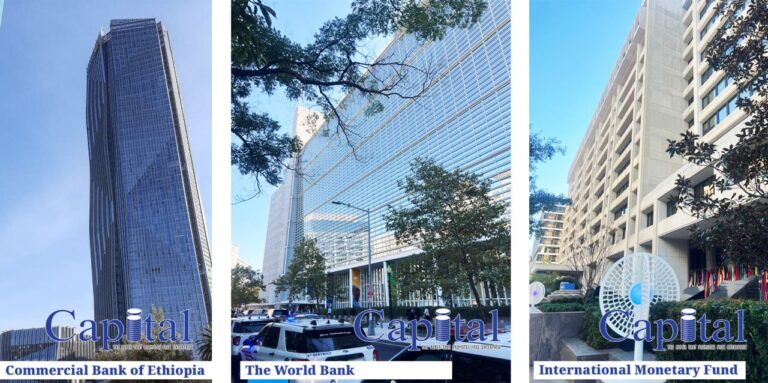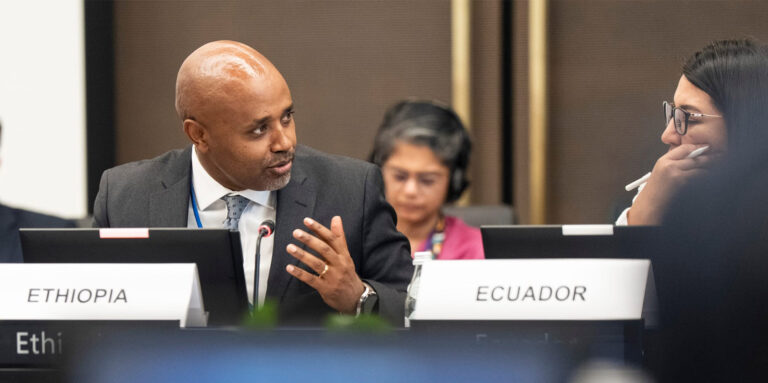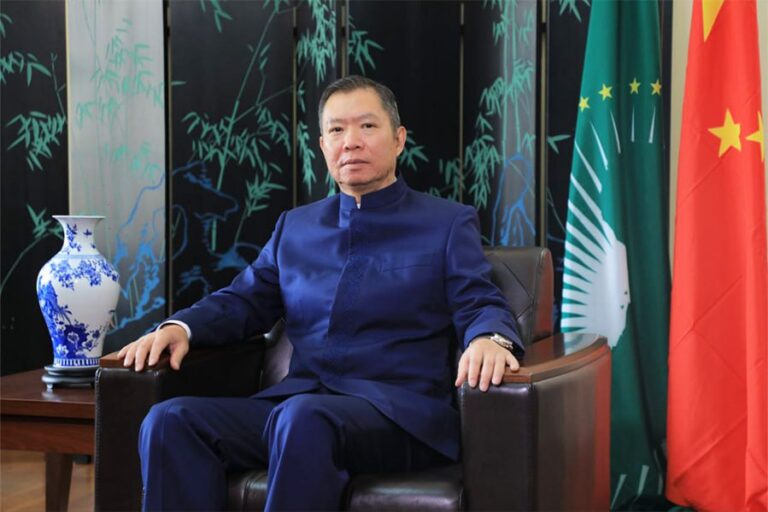The Commercial Bank of Ethiopia (CBE) is set to receive the first tranche of a long-awaited financial injection from the World Bank as early as next week, with this initial disbursement expected to cover more than half of the total allocated funds.
This funding is part of the World Bank’s Financial Sector Strengthening Project (FSSP), which was officially declared effective last week following high-level discussions with a visiting World Bank delegation. The performance-based disbursement will provide CBE with over USD 650 million to enhance its financial stability and support Ethiopia’s broader macroeconomic reforms.
CBE must meet specific conditions to strengthen its financial position in order to access these funds. According to information obtained by Capital, the FSSP was declared effective last week after discussions with the World Bank delegation.
This marks a critical milestone in Ethiopia’s macroeconomic reforms, which commenced in July 2024 and include a significant restructuring of CBE.
The bank has encountered substantial challenges due to non-performing loans issued to state-owned enterprises (SOEs), particularly in the chemical and sugar industries.
To alleviate CBE’s financial strain, the Ethiopian government committed to repaying approximately 850 billion birr in SOE debts through the Liability and Asset Management Corporation (LAMC), established in 2021. Initially, LAMC made progress by utilizing proceeds from telecom and mobile money license sales.
However, domestic conflicts disrupted SOE reforms and privatization efforts, halting further repayments and leading to new arrears at CBE.
As part of discussions with international partners to support Ethiopia’s economic reforms, which began in 2019 but were delayed due to the northern conflict, resolving CBE’s arrears became a key priority. Additionally, the government agreed to inject capital into the bank, with the World Bank contributing through the FSSP.
After extensive negotiations and restructuring, the FSSP was declared effective, paving the way for the disbursement of over USD 650 million. Experts emphasize that meeting performance-based conditions is crucial for accessing these funds.
Key conditions for disbursement included the government issuing a 900 billion birr bond, which is a prerequisite for CBE to receive USD 250 million from the World Bank.
The Ethiopian Investment Holdings (EIH), CBE’s parent organization, was required to submit essential documents, including an ownership policy, a revised mandate, and an updated strategic plan, to unlock USD 50 million.
CBE’s board composition needed to comply with National Bank of Ethiopia (NBE) governance directives, which included appointing independent directors.
The bank has already fulfilled some conditions, such as the bond issuance, the EIH commitment, and board restructuring, enabling it to access at least USD 350 million—almost 54 percent of the total approved amount—in the coming week.
CBE President Abie Sano has confirmed to Capital that the bank will start receiving the funds next week, though he did not elaborate further.
In line with the agreement with international partners, the government appointed Mahlet Kasa, Henok Assefa, and Henok Teferra (Amb) as independent board members, chaired by Ahmed Shide, Minister of Finance (MoF).
To satisfy the anticipated prerequisites, Wondimagegnehu Negera was appointed as the fourth independent board member; he has held this position since May 2023, following his tenure as CEO of the Ethiopian Commodity Exchange.
According to the agreement with partners, the bond amount and repayment structure total 845.3 billion birr to clear SOE bad debts, including those of Ethiopian Electric Power.
The government will also contribute 54.7 billion birr to bolster CBE’s capital.
The bond ratified by parliament late last year has a maturity of 13 years and includes a 3-year grace period. Interest rates are set at 9% for the current budget year, followed by 10% and 10.5% for the subsequent two years. After the grace period, the rates will align with the National Bank of Ethiopia’s (NBE) policy rate.
So far this fiscal year, the government has paid 38 billion birr in semi-annual interest.
The Financial Sector Support Program (FSSP) is a three-year initiative, with the first major disbursement expected by December 2025. By the end of the year, the Commercial Bank of Ethiopia (CBE) could receive up to USD 550 million, contingent on meeting additional conditions met by it and other entities such as the NBE and the Ethiopian Investment Holdings (EIH).
The FSSP aims to enhance banking regulation and supervision through NBE modernization, reform and recapitalize the CBE, and support the Development Bank of Ethiopia (DBE). The state-owned DBE is also expected to secure some of the USD 700 million in funding approved under the FSSP.
This funding is a crucial step toward stabilizing Ethiopia’s financial sector and ensuring the long-term sustainability of the CBE.







